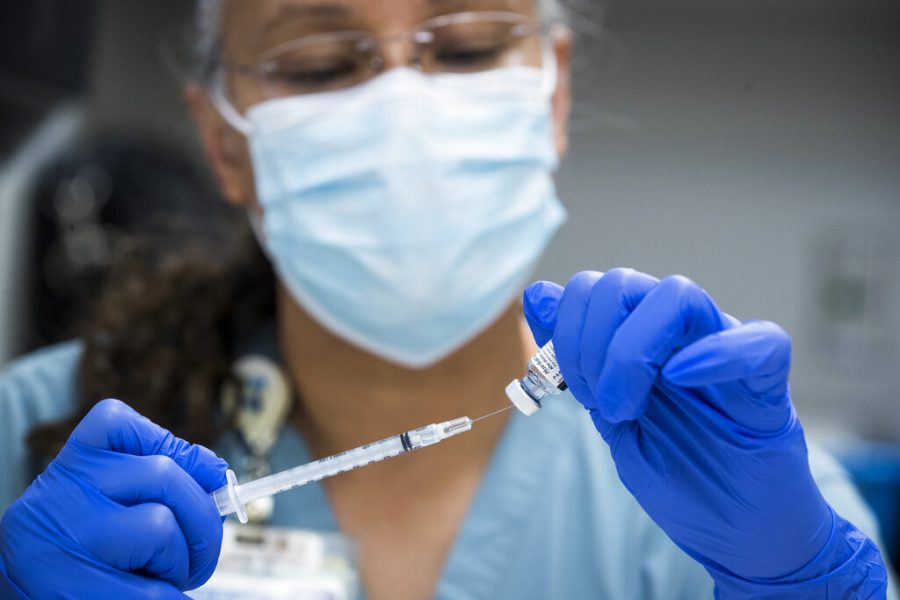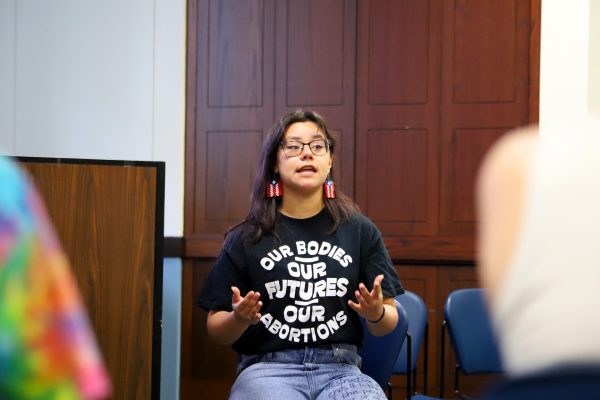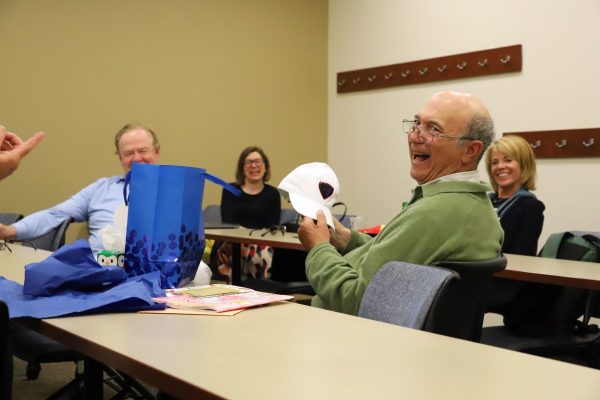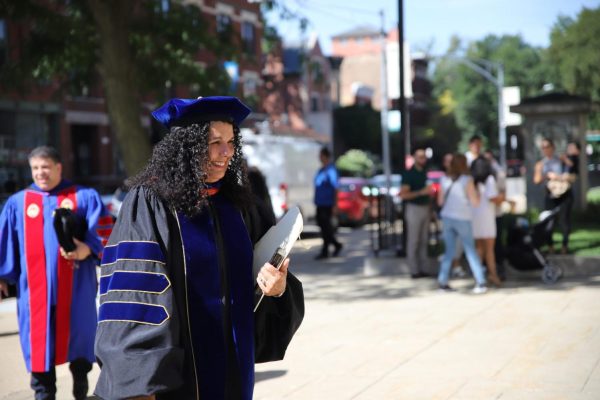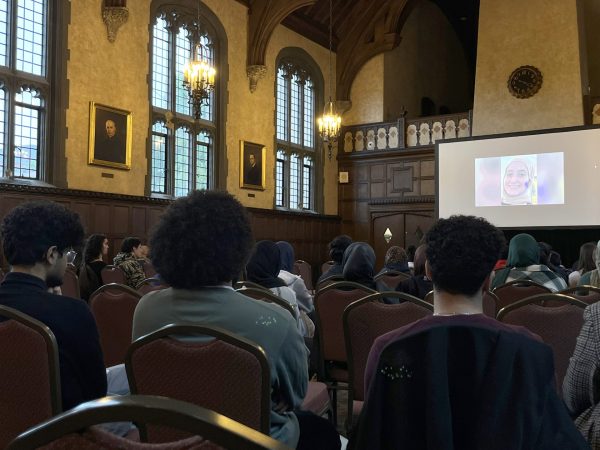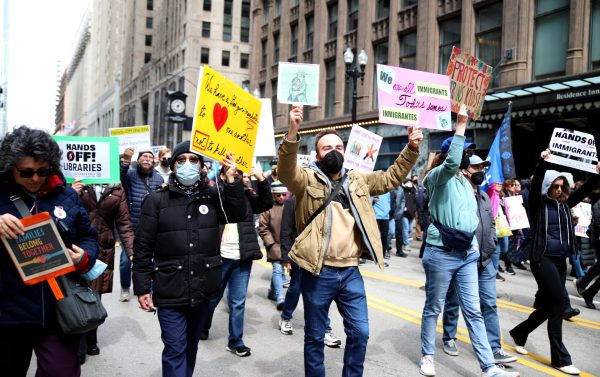Covid-19 leaves student nurses anxious about the future
AP for The DePaulia
FILE – In this Thursday, Feb. 11, 2021 file photo, pharmacy technician Sochi Evans fills a syringe with a Pfizer-BioNTech COVID-19 vaccine at Texas Southern University in Houston. Coronavirus cases are continuing to decline in the U.S. after a winter surge. Researchers at Johns Hopkins University say the seven-day average of new coronavirus cases in the country dropped below 100,000 on Friday, Feb. 12 for the first time since November 4. (Brett Coomer/Houston Chronicle via AP, File)
Covid-19 has taken an obvious toll on nurses working on the frontlines, but what about those who are about to enter the healthcare profession?
Three students of DePaul University’s Masters Entry of Nursing Program are concerned about entering the healthcare field in the midst of the pandemic.
Initially, Covid-19 disrupted their curriculum. All lectures and clinical days, classes designed to teach medical students in real-life simulations, were postponed.
Vice President of the DePaul Student Nursing Association Zahava Vales said remote learning became difficult when student nurses weren’t able to receive the training clinical days provide them.
“The clinical rotations we do are what helps us learn in practice,” Vales said. “Lectures are obviously just as important, but [it is] definitely harder having to go through the lectures not being clinical and having that constant hands-on experience.”
After having remote clinicals the last two quarters, nursing students are now able to attend them in person, but there are stricter guidelines to keep everyone safe, according to DSNA President Corrin Hill.
Francesca Berlotti is a second year student in DePaul’s nursing program who has watched the toll the pandemic has taken on nurses. She said it has caused her to think about her future as a healthcare professional.
“The pandemic has changed health care so it has changed nursing. In some ways, that is stressful,” said Berlotti, 25. “A lot of people are getting burnt out and retiring. That means that in a profession that was already chronically short-staffed, it’s only getting worse.”
The turnover rate for nurses, the percentage of nurses that stop working, is as high as 50 percent, according to Dr. Suling Li, DePaul University chief nursing officer.
Hill, the DSNA president, said it’s difficult for her to see nurses, people who share the same passion for helping others as she does, work in a stressful environment.
“It’s really sad because nurses and health care workers give so much time and effort into taking care of other people, and the few things they ask for they can’t get,” Hill said. “It’s really sad to hear about how many health care workers have passed away due to this because all they were trying to do was help somebody else live.”
Li said nursing students will need “additional help in terms of transition” following graduation in light of the pandemic.
The transition she refers to is the focus on “A Regulatory Model for Transitioning Newly Licensed Nurses to Practice, outlined in an article written by Li and Nancy Spector in 2007.
Sometimes practice settings expect graduates to immediately become accustomed to working in a hospital setting. This isn’t realistic, according to Li.
“There are issues that some practice settings kind of expect the student to hit the ground running after they graduate, but, obviously, nursing is a discipline and experience matters a great deal,” Li said. “Once the student graduates from nursing school they need that period of time to transition in the hospital setting or in the practice setting.”
The transition module includes patient-centered care, communication and teamwork, evidence-based practice, quality improvement, and information all taught by a preceptor, an experienced practitioner to guide incoming nurses.
Because current nursing students weren’t able to have as many clinical days as they should, they’ll need more practical experience during the transition period.
The bustling health care environment will be difficult to adapt to, but Li encourages students to remember why they chose nursing.
“Always keep in mind you are doing the public good and then you’ll always be happy with what you do, because you know you are contributing to the benefit of the society,” Li said. “You are in a noble profession.”


